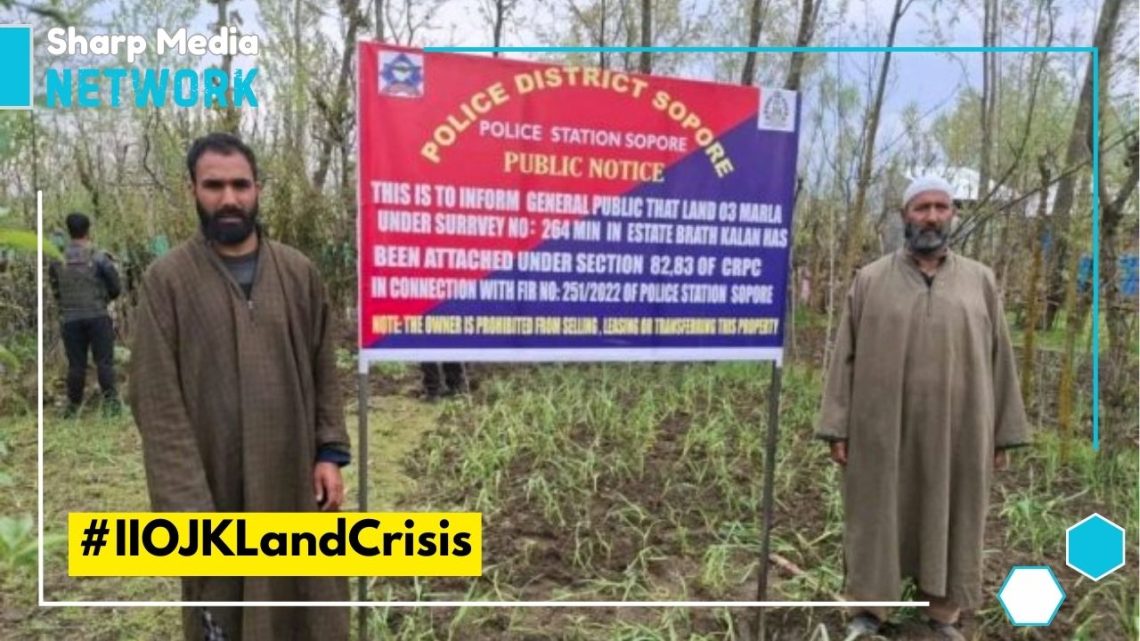
Indian Authorities Seize Orchard Land in Baramulla, Intensifying IIOJK’s Land Crisis
April 10, 2025 Off By Sharp MediaThe seizure of land in IIOJK is part of a growing pattern aimed at weakening local communities.
The Indian authorities in the New Delhi-controlled Indian Illegally Occupied Jammu and Kashmir (IIOJK) have seized orchard land belonging to two local Kashmiris in Baramulla district. The action, carried out under the orders of the Lieutenant Governor, targeted land owned by Bilal Ahmad Mir and Mohammad Umar Mir in the Brath Kalan Sopore area.
Indian police confiscated 7 marlas of orchard land from the two men, using the Unlawful Activities (Prevention) Act (UAPA), a law often criticized for its broad and oppressive powers. The UAPA allows authorities to take swift action against individuals or property deemed to be linked to “unlawful” activities, but many see it as a tool to suppress dissent and seize property without due process.
This latest land seizure is part of a larger trend that has been unfolding since the revocation of IIOJK’s special status in August 2019. The Indian government, under the Bharatiya Janata Party (BJP), has intensified efforts to dispossess Kashmiris of their land and property. By doing so, the government aims to weaken the economic power of the local population, further consolidating control over the region.
Kashmiris have long relied on agriculture and land ownership for their livelihoods. Seizing land disrupts their way of life and deepens the economic struggles they face under the continued military occupation.
These actions are seen by many as a direct attack on the Kashmiri identity and way of life. They also fuel local fears that the government’s true aim is to alter the region’s demographics by displacing its native population and replacing them with settlers from outside the region.
The seizure of land under the UAPA is particularly concerning, as it bypasses typical legal processes. People whose land is taken often have limited means to challenge the seizure in court. In this case, the affected families, like many others, have few options to reclaim their land once it is seized.
In addition to the immediate loss of land, these measures contribute to a wider strategy of control over IIOJK’s resources and population. The economic weakening of Kashmiris through land dispossession has become a critical aspect of the Indian government’s broader approach to the region since the abrogation of Article 370 in 2019.
Local and international critics continue to decry the ongoing violations of human rights in IIOJK, with many calling for an end to such practices and a return to political stability and justice for the Kashmiri people.

